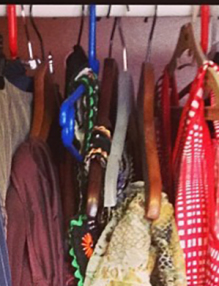The market consists not only of PCs, but also mobile devices and Allegro knows what it’s doing in this regard. Recently, Google boasted that in many countries (including the US), users search on mobile phones and tablets more often than on PCs. This means that soon other segments of Internet usage will be shifted toward mobile. Allegro is prepared for this shift. In the last year they have managed to hire a host of seasoned programmers and managers, focused on product development, rebuilding the platform and focusing on mobile development. Smartphones were the apple of the eye of Allegro’s R&D centre in Krakow, managed by former Google director – Wojciech Burkot, from the very start.
5 million downloads of the app, with 11 million people using the internet on smartphones or tablets in 2014, was the outcome of the Group’s work on mobile development. The value of transactions made during this period amounted to 80% of all m-commerce transactions in Poland. The rival e-commerce businesses lag way behind in this market.
Technology and Marketing in the service of the seller
Strong emphasis on technology within the Group also results in the creation of a proprietary tools ecosystem which, based on the customer experience, is constantly being adapted. Once a simple system, today an advanced vendor and customer Panel. Products are presented in the form of a Listing – one by one. At the end of 2014, the creators of the site tested and then introduced an advertising system – the ads.allegro service, where the sellers can present their products in first place on search results for a given phrase. Interestingly, the sellers do not set keywords on their own, the system is automated, based on Netsprint technology, it does it using the product description. The revenue model for this solution is CPC (cost-per-click) and the advertising budget is optional.
Allegro awards the best advertisers with VIP status, which is based on the levels of turnover, cooperation history, quality of goods and customer service. VIP status means, among other things, that the brand receives a dedicated caretaker, training, and participation in Allegro’s marketing events, including mailings. The other sales channels include Strefa Marek Allegro (Brands Zone Allegro) and Okazje (Deals), which have dedicated tools for promotion and marketing activities. In the Brands Zone, these are primarily favourable settlements and cashback, whereas for retailers using the Deals channel, these are UX and marketing improvements: crossed out higher price, prices in the listing highlighted with a different colour, participation in mailing (base of 2 million users) and the opportunity to participate in the Fashion and Beauty category’s mailing, the possibility of appearing on the main site or participation in large seasonal campaigns (spring-summer/autumn-winter), and thus the possibility of presenting their brand in the most popular TV stations, printed and digital newspapers and in digital Allegro campaigns.

Speaking of my AGILE fashion manifesto
I had a good reason to ask Allegro to support GGC Fash&Tech Wawa#5: AGILE fashion. If you read my Manifesto, you’ll know I mentioned Allegro in it. In a nutshell, it focused on the idea that fashion brands should avoid investing money into their business, as long as they do not have enough money, they should instead base their decisions on development, spending time and money on data, consulting with customers or potential customers and getting feedback from as many people as possible, as well as outsourcing what they can – instead of creating their own infrastructure.
Allegro is one of the few e-commerces, and basically the only m-commerce, which offers its users AGILE functioning, whilst at the same time it gives them a scale which, so far, is unattainable for any other e-commerce in the Central European market. From my conversations and inquiries, it became apparent that Allegro is a most interesting example of a company that operates according to the principles of AGILE. They are always adding something (most recently it was free inPost returns), always changing – tree category, standardized parameters, Usability experiments, as well as making changes to the system – from the inside. Refreshing the code, researching.
The Group cooperates closely with organizations and individuals who are able to add something. They are constantly experimenting (they organize and support hackathons). It is one of the few Polish companies which cooperates with the local community to such a large extent. They act cleverly, because this allows them to meet their business goals – get to know customers, gain feedback, they can then base their development on these relationships.
Challenges facing Allegro and other fashion e-commerces

Previous:
Internet of things in fashion: an interactive mirror as part of a store’s interior design

Next:
Luxury brands in the e-commerce and m-commerce market – problems and challenges
You may also like
-
 17 Jan
17 JanReady-to-wear or Haute Couture tool: best CMS for your fashion website
fashion retailIn my last post devoted to websites for fashion I wrote why it is important ...
-
 18 Jun
18 JunAllegro: the creation of the 5th avenue of Central European e-commerce
fashion retailThe market consists not only of PCs, but also mobile devices and Allegro knows what ...
-
 22 May
22 MayMe&Oli Fashion Website – one of the coolest fashion portfolios upthere
fashion retailYesterday I found it @AWW website and I highly recommend you a fashion and ecommerce ...
-
 13 Feb
13 FebFrom the beginnings of the fashion ecommerce, through social shopping, to a vision of the clothes and accessories shops of the future
fashion retailFashion ecommerce – beginnings were bad It took a long time for a fashion industry ...


Comments are closed.